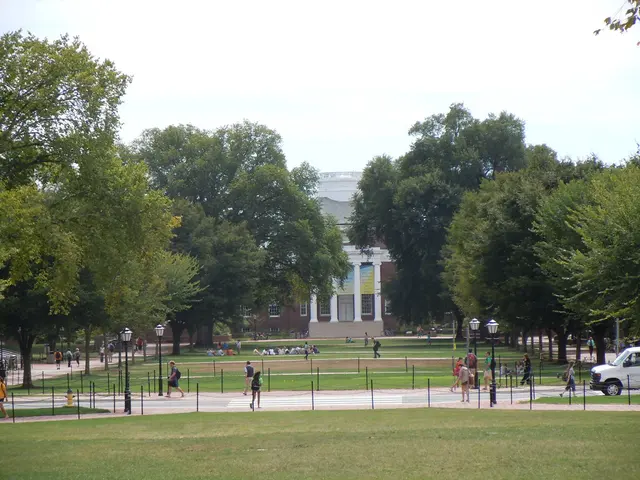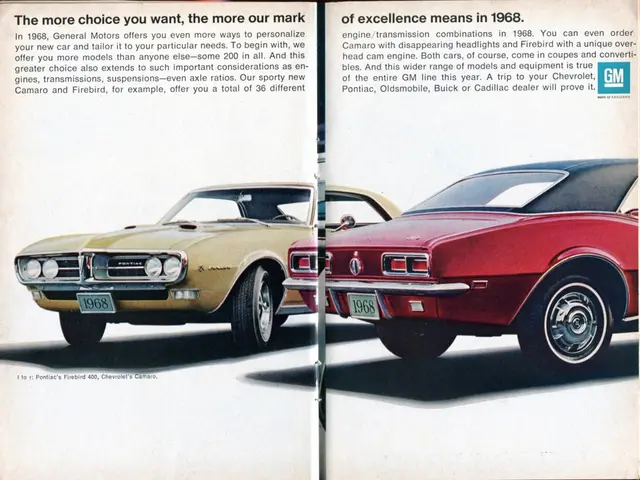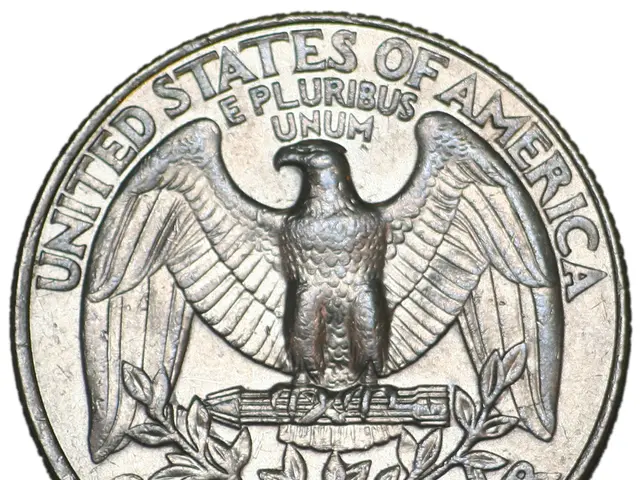Who claims the automobile of the deceased with no established will in place?
Let's Talk Money Matters: Nathalie Couzigou-Suhas, a Parisian notary, answers your tricky inheritance questions on our site's "Great Savings Rendezvous" – a radio segment dedicated to your patrimonial problems – and shares some crucial details about your share in an estate when there's no will.
By Quentin Bas Lorant, Journalist investments at oursite.fr Published on
Every month, the "Great Savings Rendezvous" tackles your questions about money issues in the "Your Questions, Our Answers" segment. Our experts – notaries, tax specialists, transmission specialists – guide you through your inheritance quandaries. Today, we hear from Nathalie Couzigou-Suhas, a Parisian notary, as she answers Marjorie, who sent us this query: "My sister has just opened the succession of our father with a notary. I would like to know who the vehicle belongs to, and if my sister already has the right to drive it. Also, my mother is in an Ehpad, my sister obtained guardianship without my consent, and she claims amounts that my parents gave me from their lifetime over 10 years ago."
Regarding the vehicle of the deceased, used by Marjorie's sister, our guest specifies: "The notary's mission is to apply the law and verify the existence of a will. In the absence of a will, the car belongs to the estate. The heirs will each have the right to half of the vehicle, and it will be necessary to agree on who becomes the owner. Marjorie's sister has no more rights than she does on this property, unless a will explicitly designates her."
Marjorie should contact the notary to clarify the situation regarding the vehicle.
When it comes to guardianship, Nathalie Couzigou-Suhas is less certain: "If a guardianship has been put in place, it is a judicial act in which the judge of the guardianship designates the person capable of managing the affairs of the deceased. Normally, Marjorie should have been informed, as all children must be summoned to discuss this nomination." It might be a future protection mandate, which doesn't require consultation of the heirs before its implementation.
Finally, regarding the amounts due to the Ehpad, the expert recalls the principle of the obligation to provide support: "There are departmental aid schemes for the elderly, but these aids are recoverable from the estate or from donations made within 10 years before the aid request. The State considers it a temporary allocation, which can be reimbursed if the resources of the estate allow it."
Before making donations, advice is needed: "It's always good to help the next generation, but you have to make sure you're not too impoverished and anticipate future costs," reminds Master Couzigou-Suhas. In conclusion, Marjorie should contact the notary in charge of the succession to clarify the situation regarding the vehicle, guardianship, and the possible recovery of the aid paid.
Got a finance question? Ask our experts!
A question about your investments, an inheritance, your taxes, or your real estate investments? Each month, we select several and submit them to our experts who will enlighten you on all the subjects related to your money. To ask them your questions, an address: question@our site
>> Our Service - Discover the Best Funeral Insurance Rates View Their Posts Around This Article * The Great Savings Event* Show* Succession* Inheritance* Divorce
Here's a quick overview of inheritance rules in France:
- Forced Heirship: A portion of the estate is reserved for certain heirs, primarily children.
- Légitime: This is the part of the estate that must legally go to the heirs by law, typically children and sometimes spouses under certain conditions.
In the absence of a will, siblings can inherit a deceased's property when there are no children or spouse to claim it, but their rights are secondary to those of more direct heirs under French intestate succession laws.
[1] Source: EU Succession Regulation | Cambia Law
- In the absence of a will, the car belongs to the estate and the heirs, like Marjorie in this case, will each have the right to half of the vehicle.
- The notary's role is to apply the law and verify the existence of a will. In the absence of a will, the vehicle links back to the estate, and the heirs will need to agree on who becomes the owner.
- Nathalie Couzigou-Suhas, a Parisian notary, mentions that when there's no will, siblings can inherit a deceased's property, but their rights are secondary to those of more direct heirs under French intestate succession laws.
- Master Couzigou-Suhas, a finance expert, emphasizes the importance of consulting a notary before making donations, as it can impact one's personal-finance and patrimonial situation.




